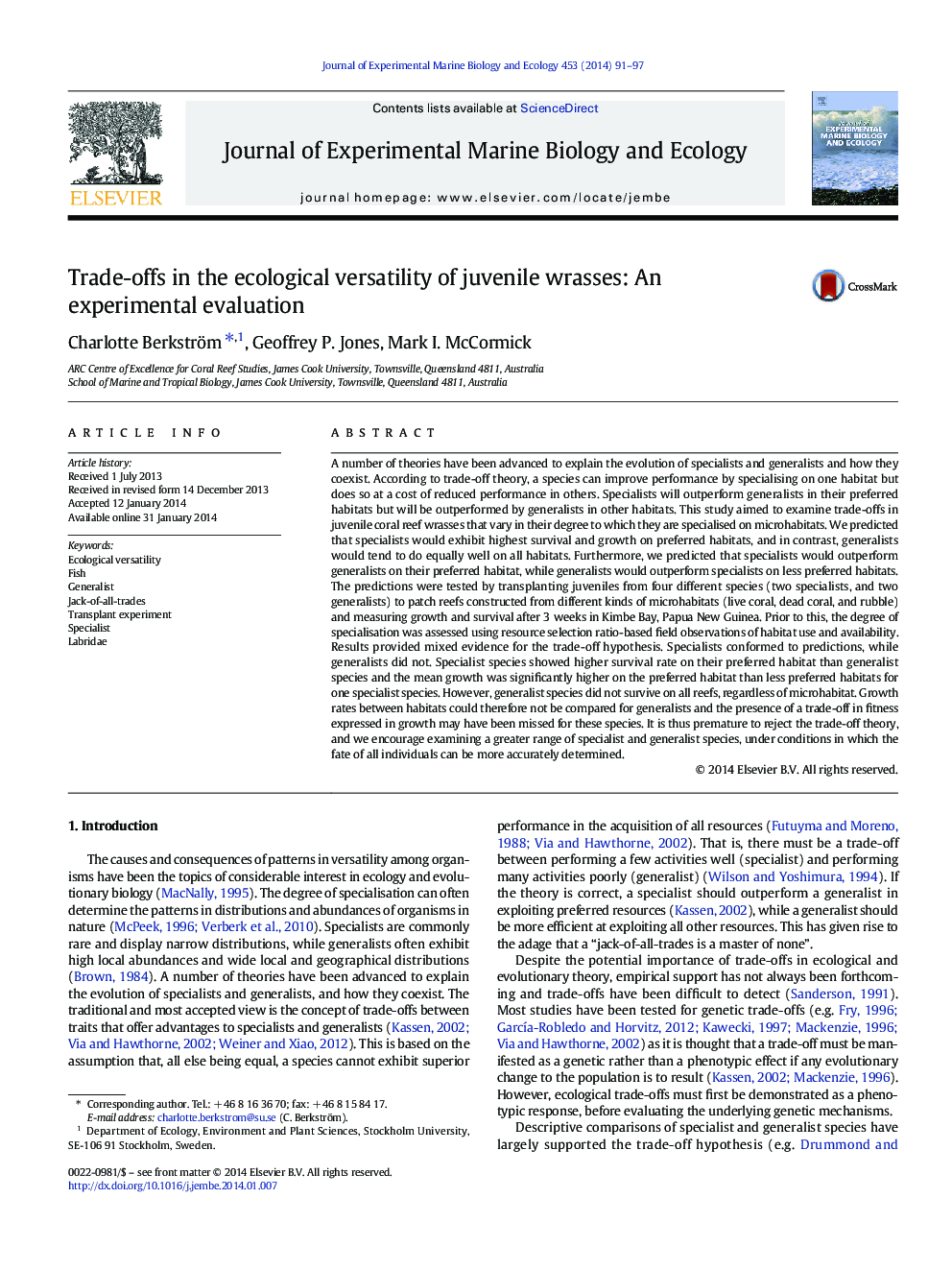| کد مقاله | کد نشریه | سال انتشار | مقاله انگلیسی | نسخه تمام متن |
|---|---|---|---|---|
| 4395579 | 1618422 | 2014 | 7 صفحه PDF | دانلود رایگان |
• We examine trade-offs with the degree of habitat specialisation in juvenile wrasses.
• We predict that specialists will outperform generalists on preferred habitats.
• We predict that generalists will tend to do equally well on all habitats.
• We perform transplant experiments of 2 specialists and 2 generalists to patch reefs.
• Results showed that specialists conformed to predictions, while generalists did not.
A number of theories have been advanced to explain the evolution of specialists and generalists and how they coexist. According to trade-off theory, a species can improve performance by specialising on one habitat but does so at a cost of reduced performance in others. Specialists will outperform generalists in their preferred habitats but will be outperformed by generalists in other habitats. This study aimed to examine trade-offs in juvenile coral reef wrasses that vary in their degree to which they are specialised on microhabitats. We predicted that specialists would exhibit highest survival and growth on preferred habitats, and in contrast, generalists would tend to do equally well on all habitats. Furthermore, we predicted that specialists would outperform generalists on their preferred habitat, while generalists would outperform specialists on less preferred habitats. The predictions were tested by transplanting juveniles from four different species (two specialists, and two generalists) to patch reefs constructed from different kinds of microhabitats (live coral, dead coral, and rubble) and measuring growth and survival after 3 weeks in Kimbe Bay, Papua New Guinea. Prior to this, the degree of specialisation was assessed using resource selection ratio-based field observations of habitat use and availability. Results provided mixed evidence for the trade-off hypothesis. Specialists conformed to predictions, while generalists did not. Specialist species showed higher survival rate on their preferred habitat than generalist species and the mean growth was significantly higher on the preferred habitat than less preferred habitats for one specialist species. However, generalist species did not survive on all reefs, regardless of microhabitat. Growth rates between habitats could therefore not be compared for generalists and the presence of a trade-off in fitness expressed in growth may have been missed for these species. It is thus premature to reject the trade-off theory, and we encourage examining a greater range of specialist and generalist species, under conditions in which the fate of all individuals can be more accurately determined.
Journal: Journal of Experimental Marine Biology and Ecology - Volume 453, April 2014, Pages 91–97
